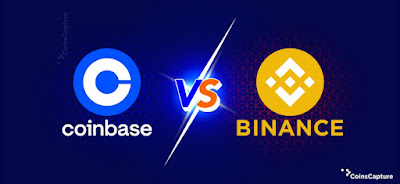Exodus vs. Coinbase vs. Binance
Exodus, Binance and Coinbase are cryptocurrency exchanges that offer digital wallets, betting and a variety of cryptocurrencies.
Coinbase is a centralized exchange, meaning it oversees transactions and secures assets on yours. In contrast, Exodus is a decentralized or distributed exchange. In this case, it provides the platform but does not control your trades. Instead, it supports P2P trading. Cryptocurrency platforms differ in their approach to fees and features. Coinbase remains an excellent choice for beginners or people who want a traditional brokerage experience. On the other hand, Exodus offers more coins and control over all assets.
Exodus was founded in 2015 with headquarters in Nebraska, and the U.S. Securities and Exchange Commission (SEC) approved its Class A common stock offering in April 2021. Coinbase launched in 2012 and was previously based in California. However, in 2020, it announced that Coinbase would be a remote company and plans to close its San Francisco headquarters by 2022. It went public through a direct listing in April 2021.
We reviewed both cryptocurrency exchanges by looking at supported currencies, platform features, fees and security.
EXODUS Variable spread and network fees. EXODUS support Currencies 138. Users are responsible for safely storing their crypto, as Exodus doesn’t hold funds or require personal information for accounts. Hot software wallet and integrates with Trezor Model T and Trezor One. Transactions Supported: P2P crypto-to-crypto trades.
In pros, Total control over your crypto assetsIntegration with Trezor hardwareEarn rewards for staking
in cons, Network fees may be higher than CoinbaseCan’t withdraw to a fiat currencyNo advanced buying and selling options
COINBASE
Fees: $0.99 to $2.99 plus 0.50% spread per trade, 3.99% for credit card purchasesCurrencies: 66Security: FDIC-insured USD balances up to $250,000, two-step verification, cold storage, bug bounty program, and insurance against theftWallet: Web-based hot wallet software and optional Coinbase hot walletTransactions Supported: Buy, sell, withdraw, send, and receive.
in Pros
Can buy crypto using USD or another fiat currencySeveral buying and selling transaction types
In Cons
Higher fees than other centralized exchangesAdvanced features require using Coinbase Pro
Binance
Binance users can lower costs by: Purchasing Binance (BNB) tokens to pay fees with a 25% discount. Ability to refer friends to earn a discount on trading fees. High-volume traders can level up for very important person (VIP) discounts.
Bitcoin (BTC)
Ethereum (ETH)
Cardano (ADA)
Solana (SOL)
Polkadot (DOT)
USD Coin (USDC)
Dogecoin (DOGE)
Uniswap (UNI)
Litecoin (LTC)
Shiba Inu (SHIB)
Algorand (ALGO)
Stellar Lumens (XLM)
Polygon (MATIC)
DAI (DAI)
SushiSwap (SUSHI)
Trading Experience
As mentioned above, the company runs two different platforms known as Coinbase and Coinbase Pro.
On the main dashboard, you’re able to view your Coinbase portfolio, and you’re never more than a couple of clicks away from a screen to buy and sell currency.













0 Comments